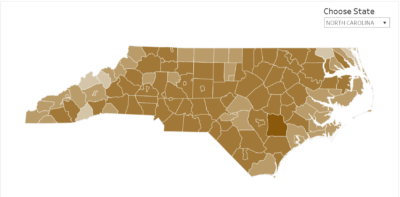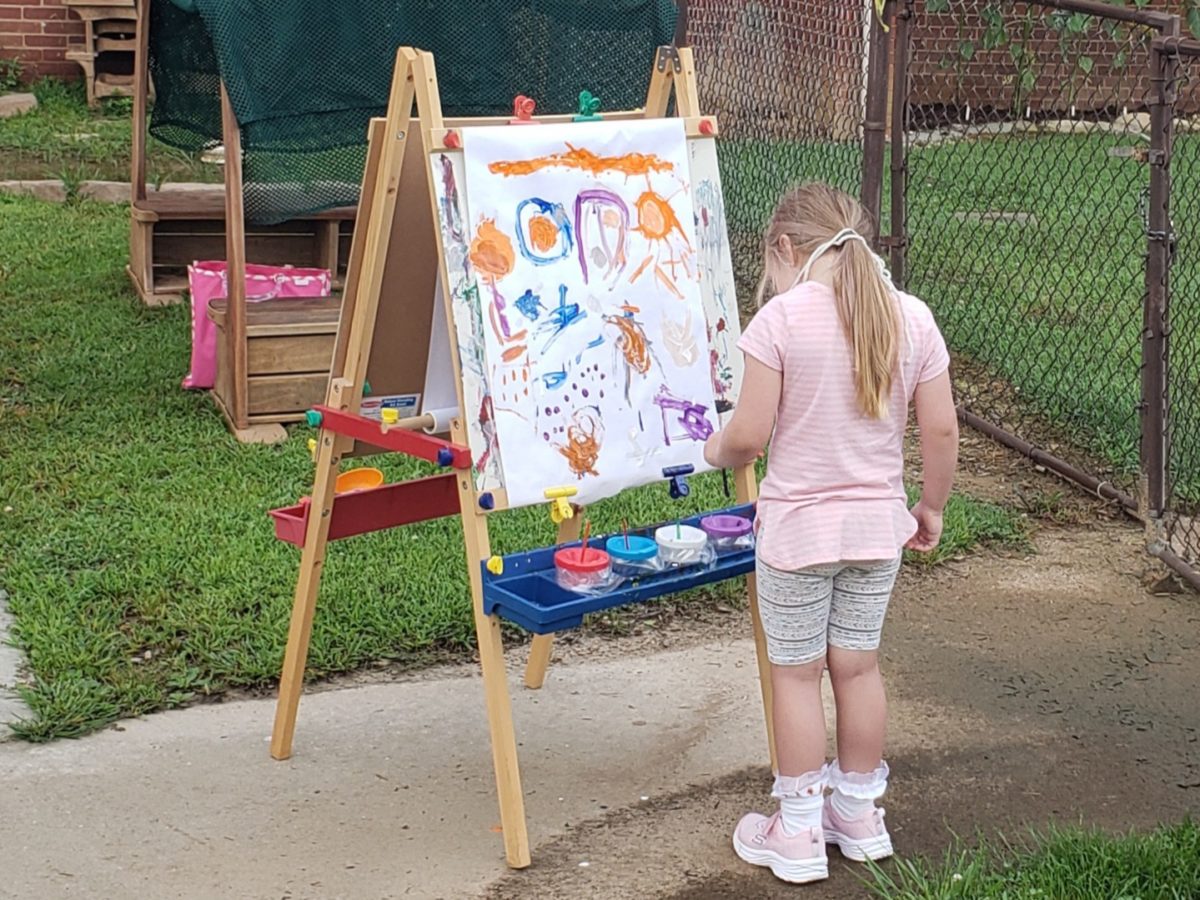
In some ways, it was like every other back-to-school day for Superintendent Scott Elliott in Watauga County. “I plan to visit all of the schools on Monday (1st day of school tradition for me!),” he texted EdNC.
Elliott made it to all of them. He noted the unusual — like how many times his temperature was taken — and the usual (at least for his district) — like the number of dirt roads and Blue Ridge Parkway overlooks. I caught up with him at the end of the school day at the district office.
“It was great to begin to feel the rattle and hum of school again,” he said.
But the only children back in class in his district are pre-K students, a self-contained day treatment mental health program for elementary and middle school students, a self-contained exceptional children program for students with severe and profound disabilities, and a self-contained cross-categorical program for students with autism.
“All children suffer by not being in school, but some children suffer far more than others,” said Elliott.
K-8 students are coming in during this first week with parents and meeting their teachers and getting oriented for the first nine weeks of remote learning. Students in grades 9-12 kicked off on day one with remote learning that is “more structured and prescribed and scheduled” than in the spring, he said.
This is Elliott with his own kids. Athena is in seventh grade and Grayson is in ninth grade.
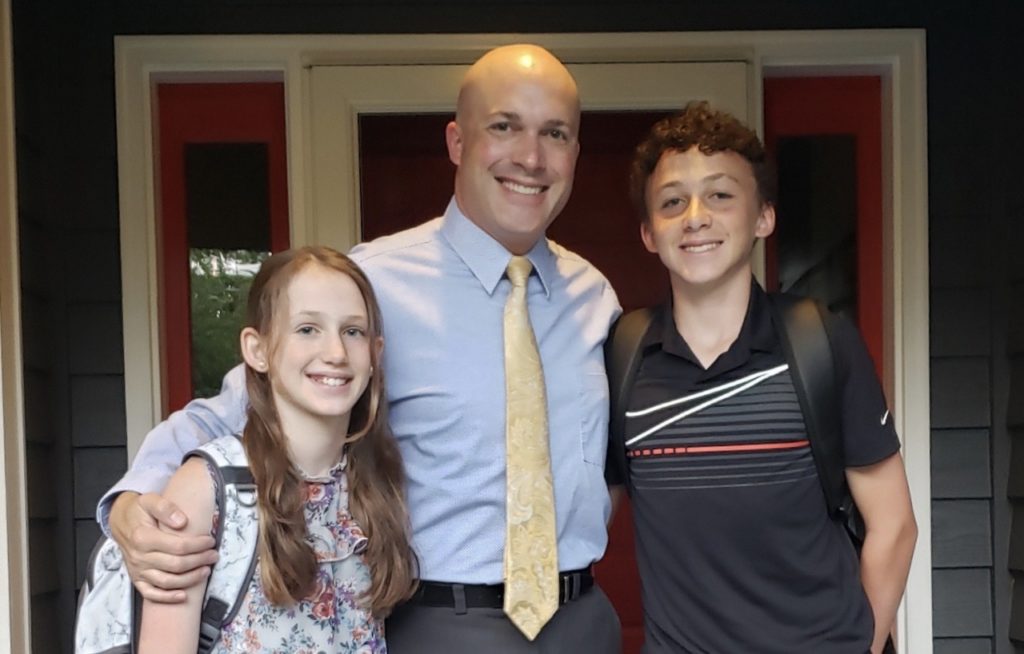
This is a family coming in for orientation at Cove Creek School.
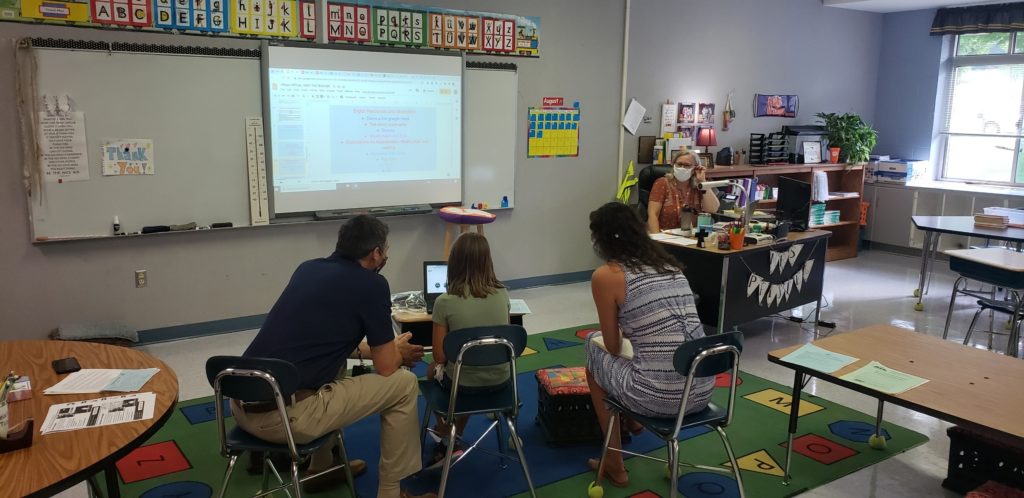
This is a family coming in to meet the teacher and pick up their Chromebook at Green Valley School.
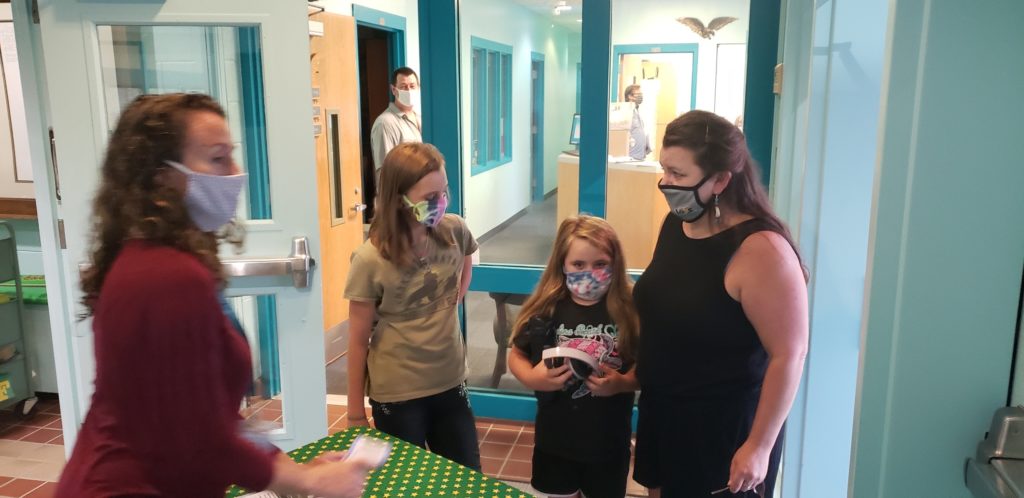
While he was there, Elliott stopped in to pet a class bunny.
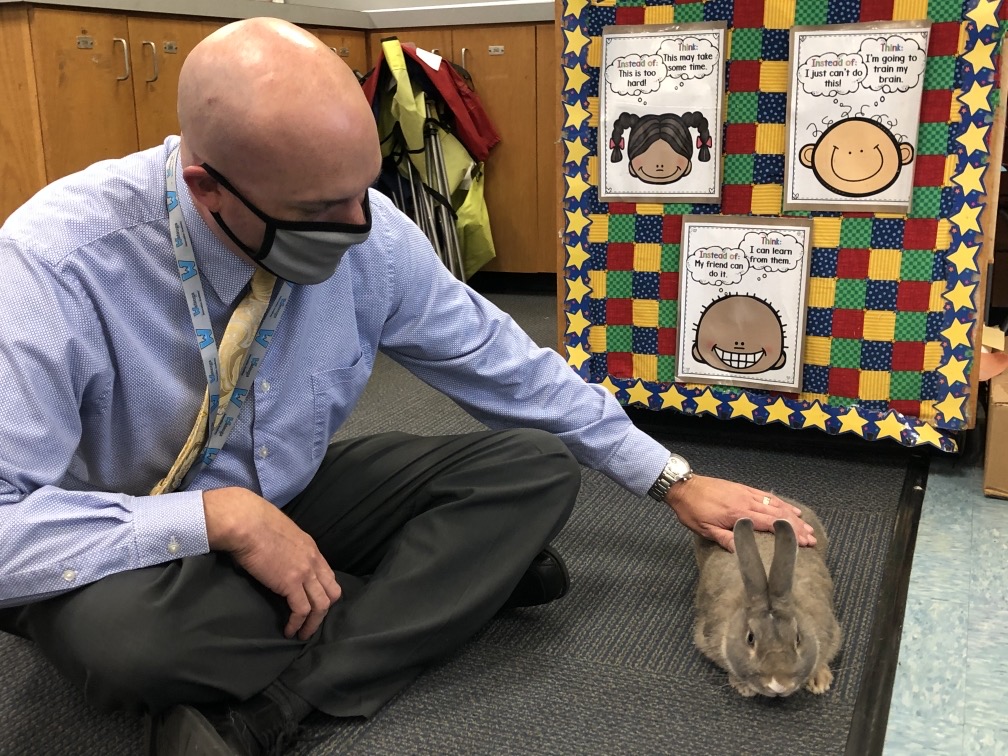
“I want to have our students back in school, but I came to the realization that before we could get our students back to school, we had to get our teachers back to school,” said Elliott. “So today felt good.”
I asked Elliott what he learned on this first, very unusual day of school. He said,
“Teachers really can do anything. They always figure out a way to pull it off.”
“Parents really love their schools. They want to be our partners.”
“And it’s OK not to have all the answers on the first day.”
Elliott and the district is offering free child care to K-8 students who are children of employees. It’s free all five days of the week at the school where the parent works. They are serving 165 children in total — children of bus drivers, cafeteria workers, teacher assistants, teachers, and principals.
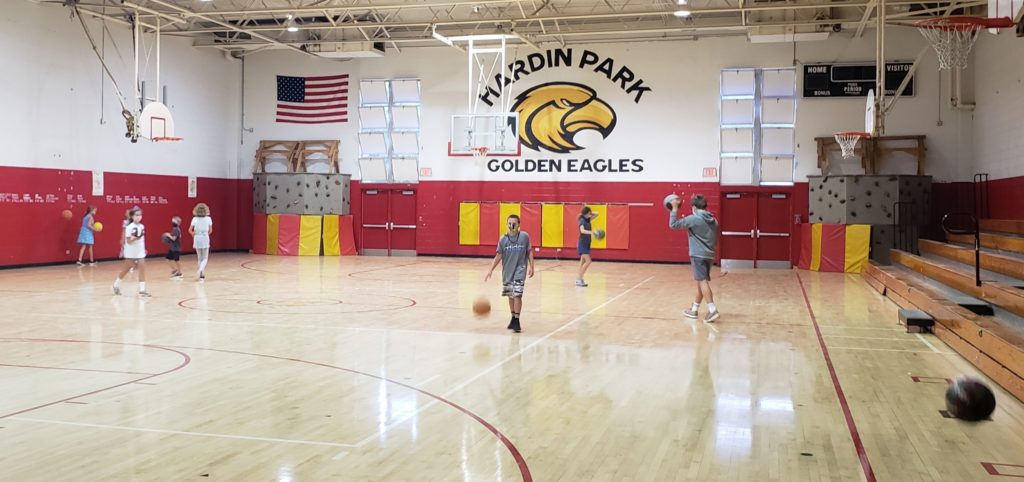
“I wanted to try to remove as many obstacles as possible for our educators,” said Elliott. “And I also wanted to model for other businesses in the community. In order for us to do our job, we have to take care of our employees and their children.”
Elliott is going out in the community and talking to employers. He gives an example of an employer who is worried about losing three employees because their kids are not in school. He suggests to the employer, “Is there a way you could carve out space in your office for the children of your employees? Or could you flex your employees’ hours so an adult is with them during the day?”
Elliott is paying for the child care by not filling certain positions and diverting staff from afterschool programs and transportation.
And he “squirreled away” his CARES Act funding. “I knew from the beginning this way forward would be more expensive than regular school,” he said. “I’m glad we have the resources to spend on things like child care for employees, cleaning supplies, and keeping as many people employed as possible.”
One more lesson learned for this district leader.
“Leadership matters,” said Elliott. “You gotta show up. Leadership right now is not just transactional. It’s not just about solving problems. It’s about how you open yourself up to other people so they can see that things are OK.”
Elliott hopes to bring all of his students back to school on October 19.


